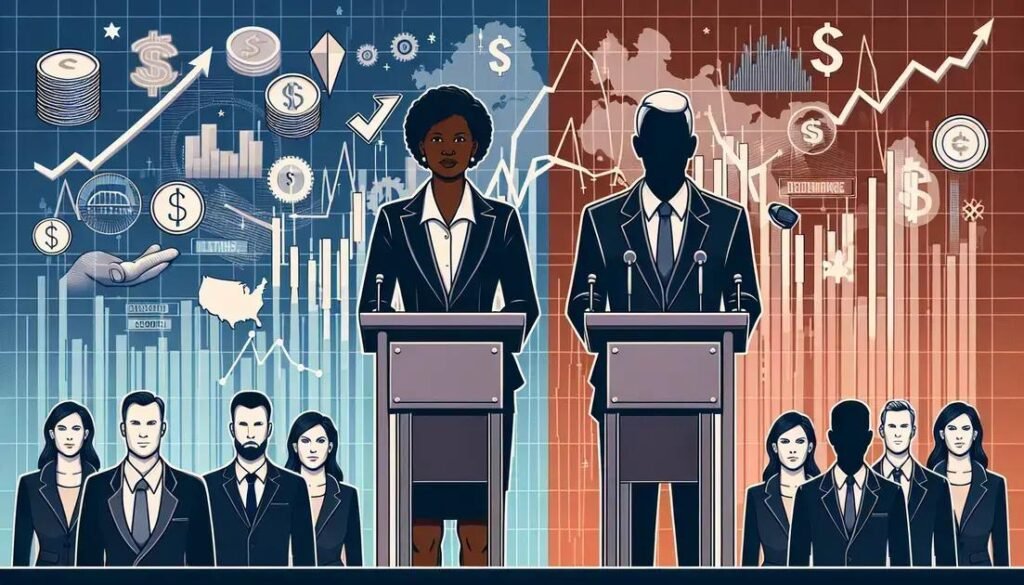The inflation rate, a key indicator of economic health, has been on the rise in recent months.
As consumers, we’re feeling the pinch as prices for everyday goods and services continue to climb.
But what’s driving this surge in inflation, and what does it mean for our wallets?
Let’s dive into the world of economics to find out.
Inflation Rate: What’s Behind the Surge?
The inflation rate is influenced by various factors, including changes in supply and demand, economic growth, and monetary policy. When demand for goods and services exceeds their supply, businesses are forced to increase prices to meet the demand, leading to inflation. Additionally, economic growth can lead to higher production costs, which are then passed on to consumers in the form of higher prices. The Federal Reserve, the central bank of the United States, plays a crucial role in controlling inflation through monetary policy, which includes setting interest rates and buying or selling government securities on the open market. The Fed’s actions aim to balance the economy’s growth with low inflation, achieving a delicate balance between the two. Understanding the underlying causes of inflation is essential for making informed decisions about investment and long-term financial planning.
The Impact of Inflation on Your Finances:
Inflation can have a significant impact on your finances, affecting not only the purchasing power of your money but also the value of your investments. As prices rise, the value of money decreases, making it more expensive to buy goods and services. Inflation can erode the purchasing power of your savings, making it essential to keep pace with inflation to maintain the purchasing power of your money. Inflation can also affect the value of your investments, such as stocks, bonds, and real estate, as the returns on these investments may not keep pace with the rising cost of living. To mitigate the effects of inflation, it’s essential to diversify your investments, including a mix of low-risk and high-yield investments, and to regularly review and adjust your investment portfolio to ensure it remains aligned with your financial goals.
How Inflation Rate Affects Economic Growth:
Inflation can have both positive and negative effects on economic growth. On the one hand, a moderate level of inflation can stimulate economic growth by encouraging spending and investment. When prices rise, consumers and businesses may be more likely to invest in projects and make purchases, as the future value of money is uncertain. On the other hand, high inflation can lead to reduced consumer confidence, lower savings rates, and reduced investment, ultimately slowing economic growth. The ideal level of inflation varies depending on the stage of the business cycle and the overall economic conditions, but a level of around 2% is generally considered optimal for economic growth.
The Role of Monetary Policy in Inflation Control:
The Federal Reserve plays a crucial role in controlling inflation through monetary policy, which includes setting interest rates and buying or selling government securities on the open market. When inflation is high, the Fed may increase interest rates to reduce borrowing and spending, thereby reducing the demand for goods and services and slowing down the economy. Conversely, when inflation is low, the Fed may lower interest rates to stimulate borrowing and spending, encouraging economic growth. The Fed also uses open market operations to buy or sell government securities, which affects the money supply and the interest rates in the economy. The goal of monetary policy is to achieve a balance between economic growth and low inflation, ensuring a stable and sustainable economy.
Inflation Rate vs. Deflation: What’s the Difference?
Inflation and deflation are two opposite economic phenomena that can have significant impacts on the economy and individual finances. Inflation occurs when the general price level of goods and services is rising, while deflation occurs when the general price level is falling. The main difference between the two is the direction of the price changes. Inflation can erode the purchasing power of money, making it more expensive to buy goods and services, while deflation can increase the purchasing power of money, making it cheaper to buy goods and services. The ideal scenario is a stable economy with low and stable inflation, where the value of money remains constant.
Conclusion: What’s Next for Inflation Rate?
This article has explored the impact of inflation on the economy and individual finances, highlighting the importance of understanding the underlying causes of inflation and the role of monetary policy in controlling it. As the inflation rate continues to rise, it’s essential to stay informed and adapt to the changing economic landscape. By diversifying your investments, regularly reviewing and adjusting your investment portfolio, and making informed decisions about spending and saving, you can protect your financial well-being and achieve your long-term financial goals.
The Impact of Inflation on Your Finances

Inflation can have a significant impact on your personal finances, affecting not only your savings but also the value of your investments. As prices rise, the purchasing power of your money decreases, making it more expensive to buy goods and services. Inflation can also erode the value of your investments, such as stocks and bonds, as the returns on these investments may not keep pace with the rising cost of living. Therefore, it’s essential to regularly review and adjust your investment portfolio to ensure it remains aligned with your financial goals.
Inflation can have both positive and negative effects on economic growth. Moderate inflation can stimulate economic growth by encouraging spending and investment, while high inflation can reduce consumer confidence and slow down the economy. The ideal level of inflation varies depending on the stage of the business cycle and the overall economic conditions, but a level of around 2% is generally considered optimal for economic growth.
The Federal Reserve plays a crucial role in controlling inflation through monetary policy, which includes setting interest rates and buying or selling government securities on the open market. The Fed’s actions aim to balance the economy’s growth with low inflation, achieving a delicate balance between the two. Understanding the Fed’s monetary policy decisions is essential for making informed decisions about investment and long-term financial planning.
Inflation and deflation are two opposite economic phenomena that can have significant impacts on the economy and individual finances. Inflation occurs when the general price level of goods and services is rising, while deflation occurs when the general price level is falling. Understanding the differences between inflation and deflation is essential for making informed decisions about investment and financial planning.
In conclusion, the future of the inflation rate remains uncertain, and it is crucial to stay informed and adapt your financial strategies accordingly.
How Inflation Rate Affects Economic Growth
Inflation can have both positive and negative effects on economic growth. On the one hand, a moderate level of inflation can stimulate economic growth by encouraging spending and investment. This is because when prices rise, consumers and businesses may be more likely to invest in projects and make purchases, as the future value of money is uncertain.
On the other hand, high inflation can lead to reduced consumer confidence, lower savings rates, and reduced investment, ultimately slowing down the economy. The ideal level of inflation varies depending on the stage of the business cycle and the overall economic conditions, but a level of around 2% is generally considered optimal for economic growth.
The Role of Monetary Policy in Inflation Control

The Federal Reserve, the central bank of the United States, plays a crucial role in controlling inflation through monetary policy.
The Fed uses two main tools to control inflation: setting interest rates and buying or selling government securities on the open market.
When inflation is high, the Fed may raise interest rates to reduce borrowing and spending, thereby reducing the demand for goods and services and slowing down the economy.
Conversely, when inflation is low, the Fed may lower interest rates to stimulate borrowing and spending, encouraging economic growth.
The Fed’s actions aim to balance the economy’s growth with low inflation, achieving a delicate balance between the two.
Inflation Rate vs. Deflation: What’s the Difference?
Inflation and deflation are two opposite economic phenomena that can have significant impacts on the economy and individual finances.
Inflation occurs when the general price level of goods and services is rising, while deflation occurs when the general price level is falling.
The main difference between the two is the direction of the price changes.
Inflation can erode the purchasing power of money, making it more expensive to buy goods and services, while deflation can increase the purchasing power of money, making it cheaper to buy goods and services.
Understanding the differences between inflation and deflation is essential for making informed decisions about investment and financial planning.
Conclusion: What’s Next for Inflation Rate?

The inflation rate has been a topic of significant concern lately, with many wondering what’s behind the surge. Various factors contribute to the rising inflation, including supply chain disruptions, increased demand for goods and services, and changes in consumer behavior.
Understanding the impact of inflation on your finances is crucial. Higher inflation can erode purchasing power, meaning that the same amount of money buys fewer goods and services than before. This can affect everything from daily expenses to long-term savings and investments.
How Inflation Rate Affects Economic Growth
Inflation can have a complex relationship with economic growth. While moderate inflation is often seen as a sign of a growing economy, excessive inflation can lead to uncertainty and reduced consumer spending, ultimately hindering growth.
The Role of Monetary Policy in Inflation Control
Central banks play a vital role in controlling inflation through monetary policy. By adjusting interest rates and using other tools, they aim to maintain price stability and support economic growth.
Inflation Rate vs. Deflation: What’s the Difference?
It’s important to distinguish between inflation and deflation. While inflation refers to the general increase in prices, deflation is characterized by a decrease in prices. Both have significant implications for the economy and individual finances.
FAQ – Frequently Asked Questions about Artificial Intelligence in Small Business
How can automation of tasks benefit my small business?
Automation of tasks frees up your team from repetitive tasks, increasing productivity and allowing them to focus on more strategic tasks.
What tools can I use for data analysis?
There are many tools available, such as Google Analytics, Tableau, and Microsoft Power BI, that help collect and interpret valuable data.
What are chatbots and how do they improve customer service?
Chatbots are virtual assistants that can answer questions and resolve problems at any time, improving the customer experience and freeing up your team.
How can I personalize the customer experience?
Through data analysis, you can understand the customer’s preferences and offer personalized recommendations and promotions.
What is the importance of customer feedback?
Feedback is essential to identify areas that need improvement and adjust your strategy to ensure customer satisfaction.
Is artificial intelligence accessible to small businesses?
Yes, there are many AI solutions accessible and scalable that can be implemented by small businesses to improve efficiency and customer service.




